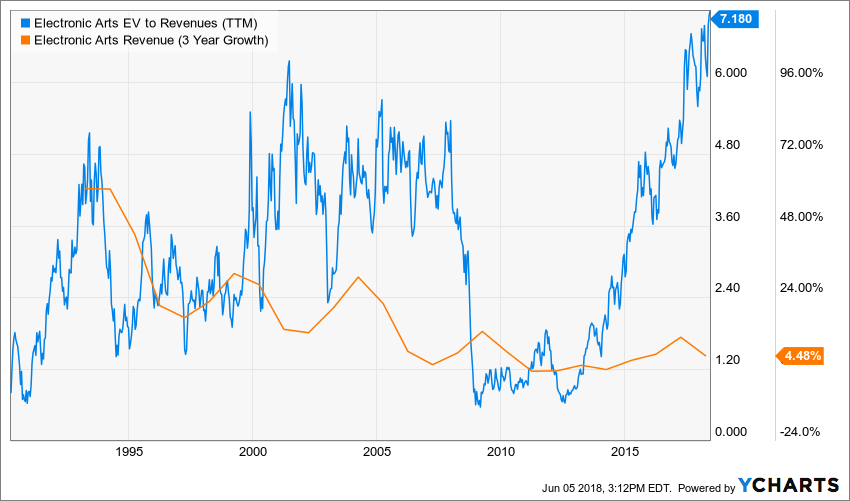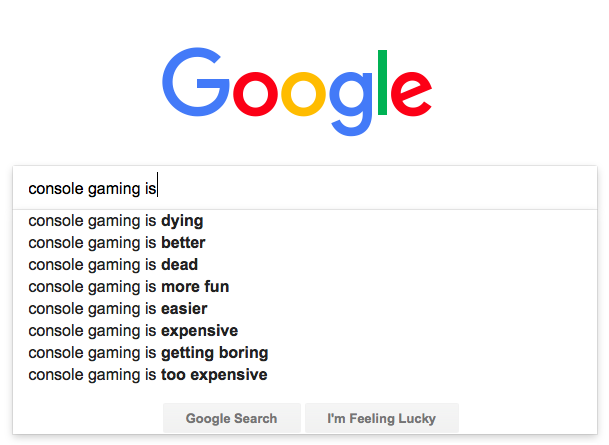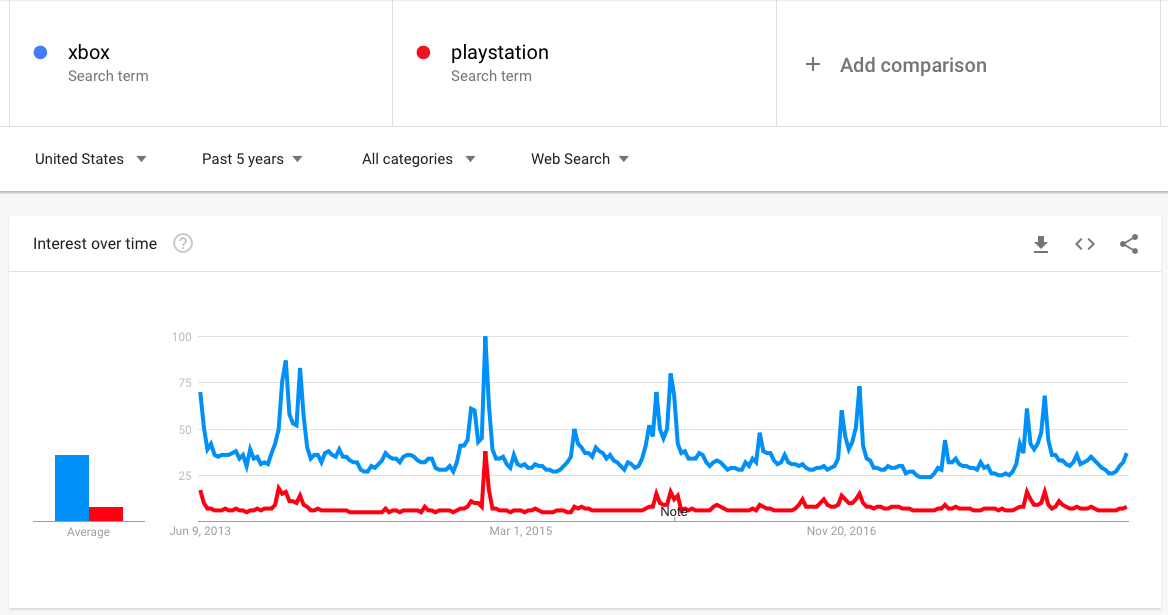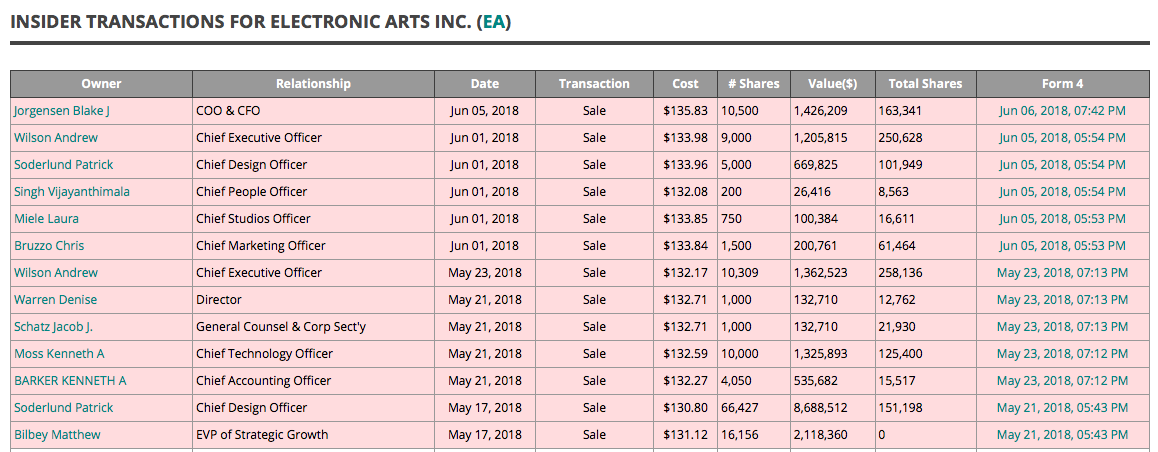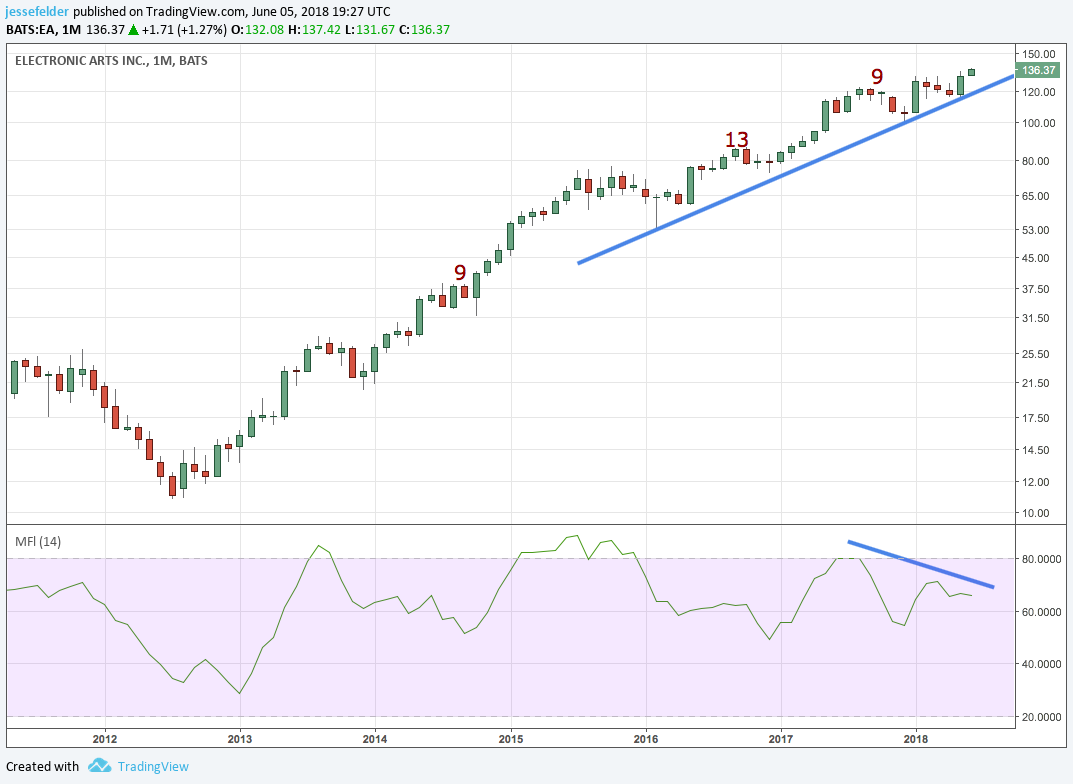Electronic Arts is one of the largest video game studios on the planet. Their primary end market is the console gaming platforms like Xbox and PlayStation and among gamers here the company is well known for titles like Madden NFL, Tiger Woods, Tony Hawk (pictured above dressed as Larry David), The Sims and Battlefield.
Like many other tech and software companies EA currently trades at its highest valuation in the company’s history even as its revenue and earnings growth decline to their lower ranges. In my view, investors in these shares are essentially driving in the fast lane while looking in the rear view mirror.
Looking back at the history of console gaming can help us understand what to expect going forward and its not nearly as pretty as what the company has seen over the past five years or so.
When the first Sony PlayStation came out it marked a very important turning point for EA. This is when video gaming really started to become a popular pastime for a larger percentage of the household and came the rise of the $700 gaming PC. Microsoft’s introduction of the Xbox a few years later along with Sony’s PlayStation 2 only furthered this trend which was very profitable for the game studios like EA.
But with the introduction of the PlayStation 3 and the Xbox 360 something changed. Major console gaming had been around for a decade and the software was starting to grow stale. Worse for the software companies was the fact that the new consoles had extensive backwards compatibility which simply means gamers didn’t have to buy new games for their new consoles. The old games worked just fine.
When the recession hit this feature was especially painful to the software companies because consumers feeling the pain of losing their jobs could find their escapist pleasures without having to buy new software. If they got bored with their old games they could buy other old games on the cheap at place like GameStop, a transaction that is great for the retailer but horrible for the software maker as they only get paid on the first sale not the subsequent ones.
With the introduction of the PlayStation 4 and Xbox One a few years later, both Sony and Microsoft decided to launch the consoles without this backwards compatibility feature. This was exceptionally bullish for the game studios as it meant every new console buyer had to buy an entire new software library to go with it. That 10-fold run in EA’s stock price since then is testament to this fact.
However, over time the console makers have brought back backwards compatibility to the new consoles. In fact, the new Xbox One X that has been out for less than a year not only allows gamers to play all of the Xbox One games but also several hundred Xbox 360 games on the new console. It has also added an enhanced graphics experience to the old titles incentivizing gamers to play them all over again. It even allows for original Xbox games, nearly 20 years old now, to be played, as well.
Furthermore, it sounds as if both Sony and Microsoft want to get away from the long-term console cycle where consumers could buy one that would last 10 years. They would prefer to move to something more similar to the smartphone model where gamers are forced to upgrade every couple of years. This would be great for the hardware companies if they can get gamers to go for it but because this model would almost inevitably have to include complete backwards compatibility it would not be nearly as good for the software makers.
The point is, investors looking in the rear view mirror at the time when console makers made them rich could be missing the fact that the new games have once again grown stale and the console makers are responding by trying to breathe life into even older games. Just look at the most popular Google searches following “console gaming is…” “Dying,” “dead,” “expensive,” and “getting boring,” are all among the top results.
What’s more searches for “xbox” and “playstation” have been trending down for years. It’s very possible that the entire console gaming industry is just getting tired as mobile gaming and other things competing for our attention gain greater share.
Insiders at the company seem to be paying attention to these trends. They have been offloading significant amounts of stock on a regular basis for the past couple of years including another slug of sales over the past month. To be clear, I don’t take insider selling to be nearly as predictive as buying but it’s certainly not any sort of show of confidence, either.
Finally, from a technical stand point the stock appears to be losing upwards momentum. It’s got a completed 9-13-9 DeMark Sequential sell signal on the monthly chart along with a large bearish divergence in money flow currently building. A breakdown below that trend line on the chart could easily lead to a 50% pullback or greater.
All in all, I think this stock has gotten way ahead of itself and faces some stiff headwinds going forward that investors aren’t paying any attention to. During the next recession the stock could easily see a repeat of its performance during the last one. For these reasons, we have added EA to the short side of our trade ideas list.

